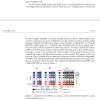Im not sure if this is going to be helpful regarding all the confusion re DDR5 ECC memory, but will share what I know...
I'm using the Asus w680 Pro IPMI with Kingston KSM48E40BD8KM-32 modules.
I've attached the output from dmidecode.
I queried the output regarding "single bit ECC" since I bought the memory directly from Kingston and this was the response I got from their technical department -
"Currently Kingston DDR5 ECC DRAM modules are built using a chip-organisation of "x8". "x8" organised modules only offer single bit correction. It's likely if you see "multi bit" correction, then this is likely from modules installed that have a "x4" chip-organisation. So, the single bit error correction displayed in the screenshots is unrelated to ECC onDie."
Does this help anyone understand better the DDR5 ECC specs/products?
Since I bought directly from Kingston, I'm happy to pose any questions that might help
I'm using the Asus w680 Pro IPMI with Kingston KSM48E40BD8KM-32 modules.
I've attached the output from dmidecode.
I queried the output regarding "single bit ECC" since I bought the memory directly from Kingston and this was the response I got from their technical department -
"Currently Kingston DDR5 ECC DRAM modules are built using a chip-organisation of "x8". "x8" organised modules only offer single bit correction. It's likely if you see "multi bit" correction, then this is likely from modules installed that have a "x4" chip-organisation. So, the single bit error correction displayed in the screenshots is unrelated to ECC onDie."
Does this help anyone understand better the DDR5 ECC specs/products?
Since I bought directly from Kingston, I'm happy to pose any questions that might help
Attachments
-
588 KB Views: 31
-
709.7 KB Views: 31




